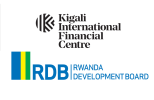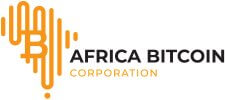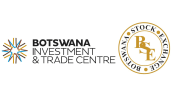The Impact of Mining in Burkina Faso
Burkina Faso, a landlocked country in West Africa, has seen a rapid rise in its mining sector. Gold mining, in particular, has become a significant part of the country’s economy.

This growth, however, has not come without challenges. The impact of mining on the environment, society, and economy is a topic of ongoing debate.
In this article, we delve into the world of mining in Burkina Faso. We explore its rise, the economic contributions, and the challenges it presents.
From the environmental and social impacts to government regulations, we provide a comprehensive overview. Whether you’re an investor, policy maker, or simply curious, this article offers valuable insights.
Join us as we navigate the complex landscape of mining in Burkina Faso.
Burkina Faso’s Mining Landscape
Burkina Faso’s mining sector has seen significant growth over the past decade. The country is now one of the fastest-growing gold producers in Africa.

This growth has been fueled by both local and international investment. The influx of mining companies has led to infrastructure development in mining areas. This includes roads and power supply.
However, the mining landscape in Burkina Faso is not without its challenges. These include:
- Environmental degradation
- Conflicts over land rights
- Political instability
- Illegal mining and smuggling
The Rise of Gold Mining in Burkina Faso
Gold mining has become a cornerstone of Burkina Faso’s economy. It contributes to about 15% of the country’s GDP. This makes it a significant player in the national economy.
The rise of gold mining has attracted international attention. Investors from around the world have shown interest in Burkina Faso’s gold reserves. This has led to an increase in industrial mining activities.
However, the rapid growth of the sector has also brought challenges. These include environmental concerns and conflicts with local communities.
Industrial vs. Artisanal Mining
In Burkina Faso, both industrial and artisanal mining coexist. Industrial mining involves large-scale operations by multinational companies. These operations are often mechanized and have a larger production capacity.
On the other hand, artisanal mining is widespread. It involves small-scale miners operating without proper regulation or oversight. This form of mining often leads to environmental degradation and safety concerns.
Despite these challenges, artisanal mining provides livelihoods for many locals. It is a crucial part of the mining landscape in Burkina Faso.
Economic Contributions and Challenges
The mining sector in Burkina Faso has made significant economic contributions. It has created direct and indirect employment opportunities. The sector has also attracted foreign investment.
However, there are concerns about job security and working conditions. Many workers in the mining sector face precarious employment situations. They often work in hazardous conditions without proper safety equipment.
The mining sector also faces challenges related to market dependencies. The fluctuation of global gold prices directly affects Burkina Faso’s mining revenue. This makes the country’s economy vulnerable to external market forces.
Revenue and Employment
Mining in Burkina Faso generates substantial revenue. This revenue has the potential to fund public services and infrastructure. However, proper management is crucial to ensure these funds are used effectively.
The mining sector also creates jobs. Both direct employment in mining operations and indirect jobs in related industries are significant. However, there are ongoing concerns about job security and working conditions.
The Price of Gold: Market Dependencies
Burkina Faso’s economy is heavily dependent on gold mining. This makes it vulnerable to fluctuations in global gold prices. When gold prices drop, it can have a significant impact on the country’s economy.
This dependency on gold mining also poses challenges for economic diversification. The government faces difficulties in developing other sectors of the economy. This is due to the heavy reliance on revenue from gold mining.
Environmental and Social Impacts
Mining in Burkina Faso has significant environmental and social impacts. The extraction of resources often leads to land degradation. This includes deforestation and soil erosion.
Water pollution is another major environmental concern. Mining activities can contaminate water sources, affecting both people and wildlife. Waste management practices in mining operations need improvement to prevent long-term environmental damage.
On the social side, mining has led to conflicts between companies and local communities. These conflicts often revolve around land rights and resource control. The impact of mining on local cultures and traditions is also a sensitive issue.
Land Degradation and Pollution
Land degradation is a major concern in mining areas. Deforestation and soil erosion are common problems. These issues can have long-term impacts on the local environment and agriculture.
Water pollution is another significant issue. Mining activities often lead to the contamination of water sources. This can affect both human health and local wildlife.
Waste management in mining operations is also a challenge. Improper waste disposal can lead to further environmental damage. It’s crucial to develop better waste management practices.
Community Relations and Land Rights
Mining activities often lead to conflicts with local communities. These conflicts can arise over land rights and resource control. Mining companies and local communities need to engage in dialogue to resolve these issues.
The impact of mining on local cultures and traditions is also a concern. Mining operations can disrupt traditional ways of life. It’s important to respect and preserve local cultures in the face of mining expansion.
Land rehabilitation is another critical issue. After mining operations end, the land needs to be restored for future use. This is essential for the long-term sustainability of mining regions.
Government Regulations and Future Outlook
The government of Burkina Faso has implemented mining codes and regulations. These are designed to manage the industry and ensure fair benefits. However, there are challenges in enforcement and monitoring of mining activities.
Political instability in Burkina Faso has affected the security of mining operations. This instability also impacts investment. Despite these challenges, the country is working towards more sustainable mining practices.
Mining Codes and Compliance
Burkina Faso’s legal framework for mining includes the Mining Code of 2015. This code outlines the rights and obligations of mining operators. Despite these regulations, there are challenges in enforcement and monitoring.
Illegal mining and smuggling of gold are significant issues. The government is trying to address these problems. Transparency in revenue management from mining is crucial for public trust and social stability.
Towards Sustainable Mining Practices
Burkina Faso is working towards more sustainable mining practices. This includes better environmental management and the formalization of artisanal mining. The country is also exploring renewable energy projects in mining areas.
The role of international donors and development partners is important. They can support sustainable mining practices in Burkina Faso. The potential for technological innovation to improve efficiency and reduce the environmental footprint of mining operations is also being explored.
Conclusion
Mining in Burkina Faso has both positive and negative impacts. It contributes significantly to the economy, but also poses environmental and social challenges.
The future of mining in the country depends on sustainable practices, effective regulations, and the active involvement of all stakeholders.













































